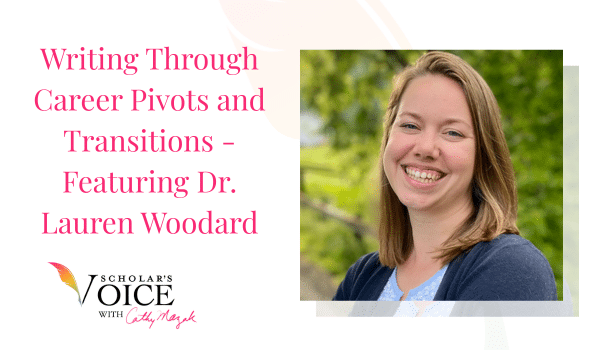How to Create a Positive Relationship with Your Writing

How do you feel when you think about writing? You are never going to write and publish as much as you want if you feel yucky about your writing. But feeling good about your writing doesn’t just happen randomly or by accident. You have to create that positive relationship with your writing.
MORE DETAILS
In this episode I’m talking all about creating a positive relationship with your writing in order to get more writing done and feel better doing it. I call this creating “positive feedback loops.” It means that when you write, you feel positive feelings, which make you want to write again, in a super-happy loop of unicorns and rainbows. I exaggerate, but you get what I mean.
These positive feelings are created by you by implementing certain writing behaviors.
Actions to Take to Cultivate a Positive Relationship with Writing
It doesn’t happen on it’s own, and it doesn’t happen by wishing for it, but you can take actionable steps to make yourself feel better about writing, with reinforces your desire to do it.
- Start with small wins. Getting in one hour of focused writing per week consistently is the first small step.Then you can expand to two or three hours. Do this during your “tiger time” (not sure what that is? Take a listen to episode 2!) The idea is to set yourself up to win at writing. Small goals, consistency, writing with focus so that the writing feels good. Be purposeful and gentle on yourself.
- Reward yourself. Set up an easy-to-maintain reward system so that you are giving yourself positive feedback for small and large writing successes. For small successes (completing your one hour sessions to start with) try something like a gold star on the calendar, or what a member of the I Should be Writing Facebook group does: putting a pebble in a glass vase for each day that you meet a small writing goal.
When you meet a large goal (submitting for publication or some other large project) be sure to give yourself a bigger reward: go out to dinner, open a nice bottle of wine, or maybe just an at-home dance party in your living room.
Get into the habit of acknowledging your work by creating a positive experience for yourself.
- Adjust your mindset. So much of writing is about mindset. We all struggle with impostor syndrome, guilt, and overwhelm at one time or another. There is so much pressure around writing and publishing in academia because the stakes are very high: getting the job, keeping the job, getting the promotion, getting the grant. Much of it is dependent on your publication record. Sometimes all the pressure can lead us to believe things about our writing that aren’t true, and certainly aren’t helpful. Adjusting our mindsets may need to include reprogramming how we think.
“We have to actively learn to reprogram our negative writing stories so that we can get our big message out into the world.”
How to Unlearn and Relearn Writing in Academia
Most of us aren’t trained in writing as a practice, so we are making up systems and behaviors as we go along. When these systems and behaviors come from a place of pressure and fear, they can end up creating negative cycles of feedback between us and our writing.
Instead, you must realize that writing is about caring for yourself and your career. It is about getting your message out into the world, where it can change your field and help people.
Your teaching and research are better when you feel good about your writing, and you are happier. Here’s how to accomplish this mindset switch.
- Identify the stories you have been telling yourself about your writing. These are all the messages that come up when you sit down to think about your writing. For example:
“I’m a bad writer.”
“I have nothing new to say.”
“This is going to get a desk reject.”
“I don’t have time to write.”
- Flip the script. Now take each story and literally flip it on its head. Write exactly the opposite.
I don’t know how to write→ I know how to write.
I have nothing new to say→ I have new and important things to say.
- Reprogram. Changing our default thoughts takes diligence. Try writing your new writing stories on a paper and hanging it up on the wall, or set an alarm on your phone and read your new stories aloud to yourself several times per day.
When your old stories come back, shoo them away with a phrase like “not helpful.” If you have to say it out loud, do it! Do whatever it takes to relearn that relationship to writing. If you were a writer as a kid, remember the reasons you wrote then: you had a story to tell, a message to communicate, something to say! You can connect with that kiddo again–and believe her that you have something important to say.
“Writing is worth your time, reflection, and energy, perhaps more than any other academic undertaking.”
Conclusion
We all know writing is vital to our academic careers. In order to maintain our productivity and our sanity, we need to intentionally cultivate a positive relationship with that part of our academic lives. No amount of pushing ourselves to write will be as effective if we don’t get this right first.
Start taking action today to write and publish more and FEEL BETTER about it!
Connect with me:
RELATED PODCASTS
Stay current in Academic Publishing
Subscribe to our newsletter:
In the Pipeline
writing tips, publishing trends, reading recomendations, free workshops





